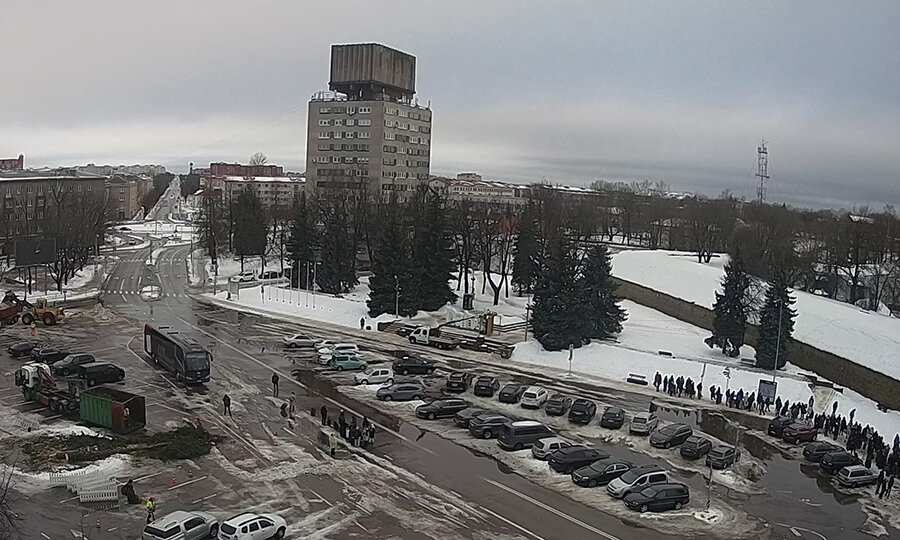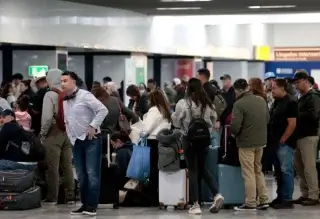read also
Estonian Parliament Considers Bill to Close Border with Russia

Estonia is once again debating the closure of its border with Russia to enhance the country’s security. A corresponding bill has been proposed to the national parliament (Riigikogu), citing Finland’s example, which began implementing such measures at the end of 2023 and fully closed its border crossings with Russia in 2024.
According to Delfi, the bill was introduced on January 13, 2025, by Urmas Reinsalu, leader of the Isamaa (Fatherland) party. Reinsalu justified the proposal by citing “the threat of sabotage by Russian special services.” He emphasized that after Finland closed its border, Russia launched several hybrid attacks against Estonia and its allies.
“Both partner services and Estonia’s security agencies have repeatedly warned of sabotage threats from Russian special services,” said Reinsalu. “The Russian Border Service carried out a hostile act by removing boundary markers along the Narva River. In December, a large-scale terrorist attack occurred in the Gulf of Finland targeting Estonia and Finland’s underwater infrastructure.”
Reinsalu argued that, given the current security situation, it is reasonable to close the temporary control line between Estonia and Russia. He added that security agencies and the government have the necessary resources and legal grounds to implement this measure.
Government’s Hesitation
Interior Minister Lauri Läänemets (SDP) previously stated that the government currently has no plans to close the border, arguing that such a move would not address all issues.
“Rapidly closing the borders at Narva and southern Estonia would impact local residents,” Läänemets said. “It might not be wise to act hastily and potentially advance Russia’s objectives. The government knows when and under what conditions the borders should be closed. We are prepared for this if necessary, but at the moment, such a measure is not warranted for security reasons.”
The minister did not specify the circumstances under which the border might be closed.
Historical Context
In 2023, Estonian authorities indicated their readiness to close the border at any moment, even within an hour if such a decision was made at the government level. At the time, there were concerns that the closure of Finland’s border crossings would redirect flows of illegal migrants toward Estonia, although no significant increase in migrants was observed.
In February 2024, Russia closed international road traffic at the Ivangorod (Narva) crossing for extensive reconstruction. In response, Estonia blocked the bridge connecting Ivangorod and Narva. While bus services between Tallinn and St. Petersburg continued, passengers had to cross the border on foot and switch vehicles.
The working hours of the Estonian checkpoint in Narva were reduced in May 2024 to 7:00 AM–11:00 PM due to a significant drop in crossings. Other border checkpoints, such as Shumilkino (Luhamaa) and Kunichina Gora (Koidula), operated as usual.
Challenges at Border Crossings
Long queues at the Narva-Ivangorod checkpoint have become a significant issue. During summer 2024, it was suggested to fully close the border, prompting Estonia to build a fence along its eastern border and consider anti-drone measures.
By autumn 2024, the situation had not improved. Experts warned of a potential humanitarian crisis due to the extensive queues. Both sides continued to exchange accusations, with no plans to ease border crossings. Instead, more restrictions seemed likely.
Current Border Crossings
Four border checkpoints remain operational between Estonia and Russia:
Narva-Ivangorod: 7:00 AM–11:00 PM.
Luhamaa-Shumilkino: 24/7.
Koidula-Kunichina Gora: 24/7.
Saatse-Krupp: 8:00 AM–4:00 PM.
It remains uncertain whether the Estonian parliament and government will approve the initiative to close the border. While security concerns are mounting, past proposals have been dismissed. Any decision will need to balance national security with the potential economic and social impacts on local communities.








